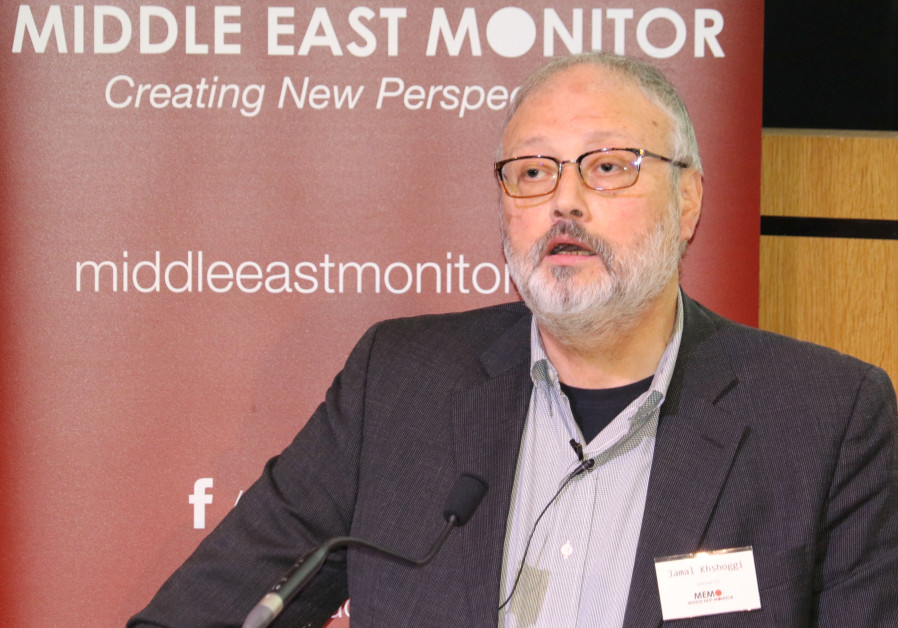Khashoggi to Post in 2007: Nakba no different than Holocaust

Saudi dissident Jamal Khashoggi speaks at an event hosted by Middle East Monitor in London Britain, September 29, 2018. Picture taken September 29, 2018. (photo credit: MIDDLE EAST MONITOR)
Jamal Khashoggi, the Saudi journalist who disappeared in suspicious circumstances in early October, described the relations between Israel and Saudi Arabia as only a “political,” not a religious problem in an exclusive interview with The Jerusalem Post years before his disappearance.
“Yes, we have a problem with Israel, but it’s a political problem,” Khashoggi told the Post at a 2007 Capitol Hill reception condemning antisemitism, when he was part of the diplomatic corp of Prince Turki Al Faisal, then Saudi Arabia’s ambassador to the United States.
“It should be a known fact that the Arabs never had a problem with antisemitism, but we need to state that over and over again,” Khashoggi added, justifying the surprising Saudi presence at the event.
Speaking of the Holocaust, Khashoggi called the chapter a horrible episode in history, but also said that there were other terrible events throughout history, such as the burning of Baghdad by the Mongols in the Middle Ages or the Palestinian Nakba.
“I know Jewish people don’t like this comparison, but everyone has his own Holocaust,” he said.
On October 2nd, Khashoggi entered the Saudi consulate in Istanbul, Turkey, to obtain a divorce document, but never left. The case of the missing journalist has since developed into a story of global significance, with serious diplomatic consequences for the oil-rich Gulf nation. It is believed that Khashoggi was tortured and killed inside the consulate by a Saudi hit squad, with new developments pointing to Saudi Arabia’s readiness to admit that the journalist was indeed killed, seemingly a result of intense pressure from the Trump administration.
Khashoggi was seen as a relatively progressive voice among his Saudi peers. While he was passionate about the Muslim Brotherhood in his youth and appeared to have supported Osama Bin Laden in the 1980s, he later cultivated connections to Saudi power structures as a journalist-insider and served as a key source for US officials in Riyadh.
Khashoggi left Saudi Arabia in 2017 as Crown Prince Mohammad bin Salman increased crack downs on dissidents, writing for Al-Jazeera, the Washington Post, and other international news outlets.
Seth J. Frantzman contributed to this report.
Join Jerusalem Post Premium Plus now for just $5 and upgrade your experience with an ads-free website and exclusive content. Click here>>






Comments are closed.